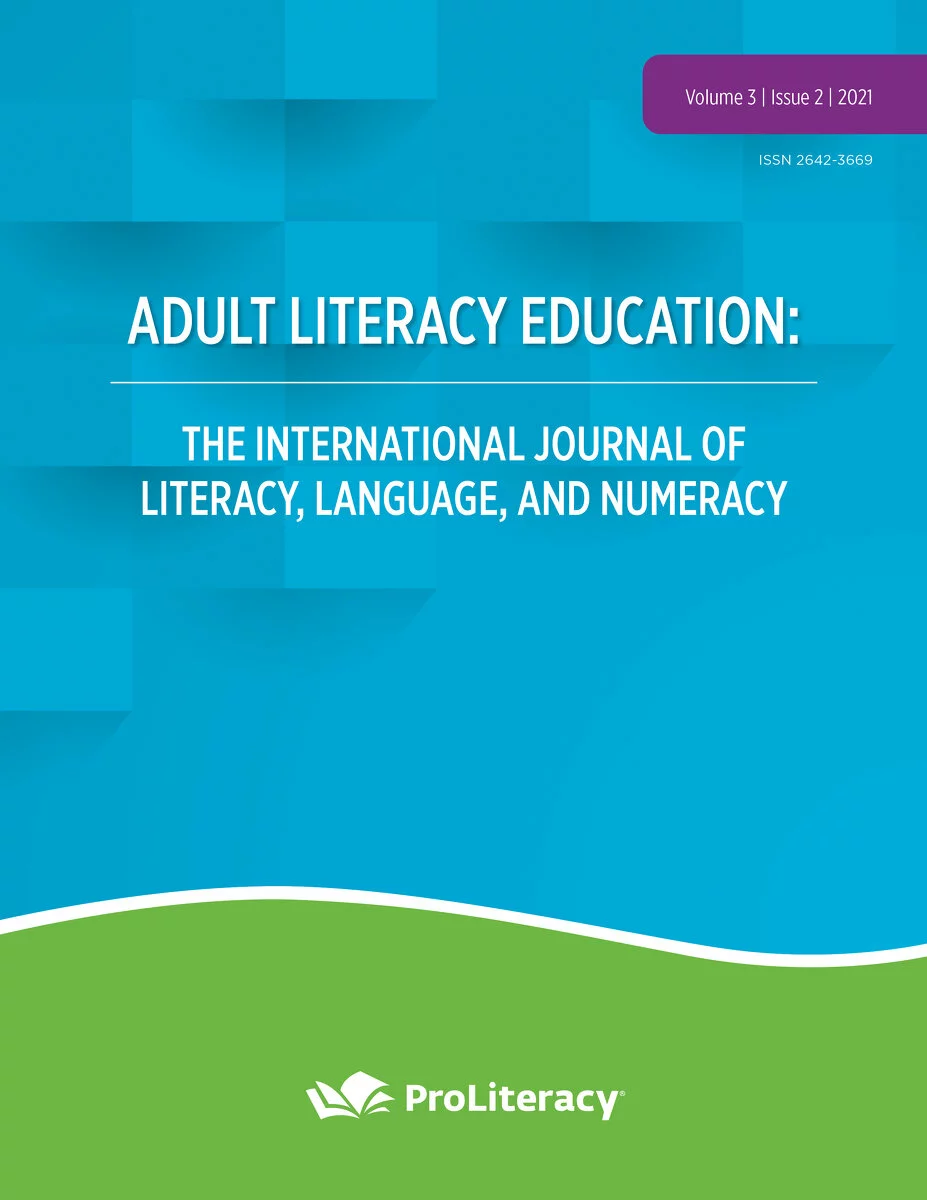Journal
The journal explores metaphors of reading and teaching reading. The study focuses on educators’ conceptualizations of reading and teaching, using metaphors to express their roles and responsibilities. The analysis categorizes the metaphors into themes such as discovery/exploration, journey, growth/health, and interpretive process.
The journal also discusses the importance of information processing, automaticity, and pragmatic modes of learning in adult literacy education. The article emphasizes the need for digital literacy skills and integration of technology in the curriculum. Overall, the journal highlights the significance of risk literacy instruction in adult literacy education.
This issue of the journal includes:
Research Articles
Author(s): Donita Shaw, Shelley Martin-Young, Abby Weyen – Oklahoma State University; Sonya L. Armstrong, Adam J. Alejandro – Texas State University
Description: The article explores the conceptual metaphors used by reading educators to understand and describe the processes of reading and teaching reading.
Author(s): George Demetrion – Capital Community College and 1199 New England Training and Upgrading Fund.
Description: The article calls for a collaborative approach to problem-solving in basic adult education, combining insights from different research traditions and balancing theoretical knowledge with practical experience.
Report from the Field
Author(s): Inga Einarson, Devi Rodgerson, Lea Lacerenza, Maureen W. Lovett – The Hospital for Sick Children; Christine Miller, Daphne Greenberg – Georgia State University
Description: The article highlights the importance of teaching basic foundational reading skills to struggling adult readers and emphasizes the positive impact of evidence-based programs like Adult PHAST in improving learners’ reading abilities, confidence, and real-life literacy skills.
Forum: COVID-19 and the Future of Adult Education
Author(s): Trenia Miles – State Director Division of Workforce Services, Adult Education Section, Arkansas
Description: The article emphasizes the need for a student-centered approach, professional development for teachers, and partnerships to address the challenges faced by adult learners and the adult education community during the COVID-19 pandemic and beyond.
Author(s): Sasha V. Lotas – Academy of Hope Adult Public Charter School
Description: The article discusses the impact of the COVID-19 pandemic on adult literacy education and the challenges faced by practitioners and learners during the transition to remote learning.
Author(s): Judy Mortrude – World Education, Inc.
Description: The article advocates for innovative approaches, policy changes, and increased funding to ensure the resilience and effectiveness of adult education programs in the future.
Research Digest
Author(s): Leah Katherine Saal – Loyola University Maryland
Description: The article discusses the importance of risk literacy in adult literacy education and explores how insights from the decision sciences can be applied to improve risk literacy skills in adult learners.
Book Review
Author(s): Janet Isserlis – Adult Literacy Practitioner, Providence, Rhode Island
Description: The book review discusses the exploration of language and literacy challenges faced by multilingual migrant women and its implications for educators and policymakers.
Resource Review
Author(s): Rebecca Eller-Molitas – Elgin Community College
Description: The review praises teaching effectively with Zoom as a practical guide for adult education practitioners, providing accessible tips and tools for engaging synchronous Zoom instruction.
Technology Solutions for Adult Basic Skills Challenges
Author(s): David J. Rosen – Newsome Associates
Description: This article talks about Flex learning models, specifically HyFlex and BlendFlex, which utilize digital technology to enhance student engagement and retention in adult basic skills education. These models offer flexible learning options that accommodate various circumstances and improve course delivery.
